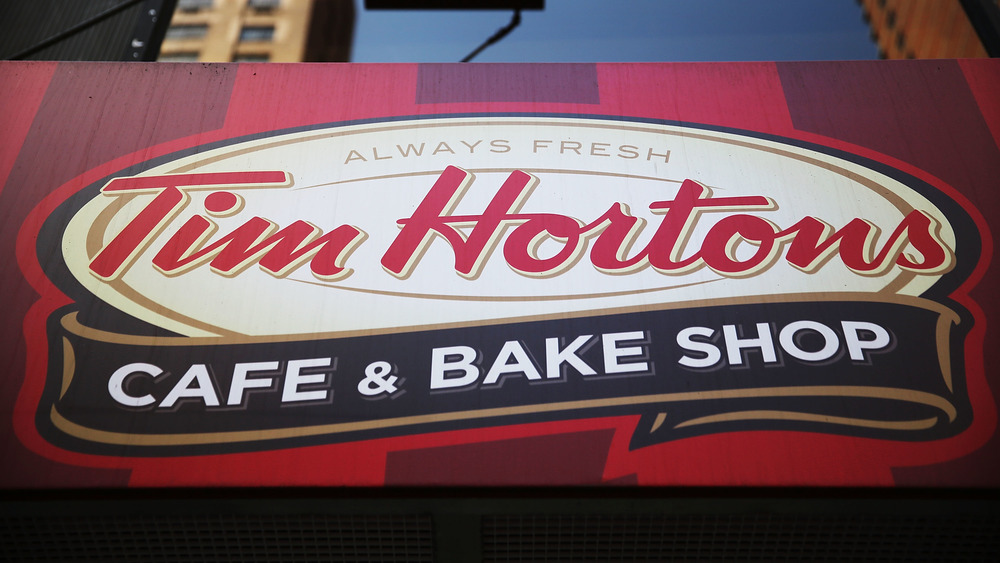People Hated Tim Hortons' Response To This Minimum Wage Increase
As a quintessentially Canadian franchise, Tim Hortons seems like the kind of company that prefers to deal in good coffee and doughnuts instead of controversy. However, it is still a big company, and as such, the laws of business apply – which means that Tim Hortons is just as susceptible to the occasional controversy as the next fast food colossus.
Some of this is directly related to their fare, like the way some people have complained that the chain's coffee tastes different than it used to, or how others are upset about Tim Hortons' new egg sandwich. Other times, the reason Tim Horton is struggling comes from changes in the market and corporate structure. Perhaps most unfortunately, the coffee chain has even managed to step on the toes of the very people it employs, thanks to an unfortunate reaction to their increased salaries. Here's why people hated Tim Hortons' response to one particular minimum wage increase.
Tim Hortons responded to a minimum wage raise by cutting employee benefits
The year was 2018, and as Macleans tells us, Ontario decided to hike its minimum wage from $11.40 to first $14 and then $15. However, Tim Hortons franchisees Ron Joyce Jr. and Jeri-Lynn Horton-Joyce had a serious problem with the situation. So serious, in fact, that they sent letters to the location's employees, informing them that they need to sign an agreement to slash some of their benefits and waive their paid breaks in order for the owners to financially recuperate from the horrors of having to pay their employees more.
This probably wouldn't have gone over well in any case. However, the fact that Joyce and Horton-Joyce happen to be children of the company's super-rich co-founders took things to the next level. After an explosion of online outrage, even Ontario's Premier, Kathleen Wynne, took some time to roast the franchisees. "It is the act of a bully," Wynne stated. "If Mr. Joyce wants to pick a fight, I urge him to pick it with me and not those working the pick-up window and service counter of his stores." Unfortunately, even a high-powered politician's "come and have a go if you think you're hard enough" couldn't quite untangle the situation. The underlying problem turned out to be that Tim Hortons' corporate office refused to help its franchisees absorb the increased employee costs with price hikes or lower supply costs, which left some franchisees scrambling to cut costs.

